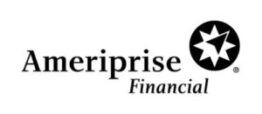
Wade James Lawrence was a stockbroker at Dallas Fort Worth area offices of Oppenheimer & Co., Inc.and Southwest Securities.
Mr. Lawrence is now headed to jail for a three year prison term, and was ordered to pay restitution of $1,454,384.48, by a North Texas Federal Judge, See Case No. 3:15-cr-374- M: United States of America v. Wade Lawrence (N.D. Tex.).
Lawrence’s problems arguably began in July 2011, when he was fired for cause by Oppenheimer for supposedly offering to make good and pay a customer for losses sustained by Lawrence trading the customer’s account, commonly known as “settling away,”
Anyway, Lawrence’s termonation for cause and Oppenheimer’s payment of $71,000 to one of Lawrence’s customers for unauthorized trading, did not stop Southwest Securities from hiring Lawrence in August 2011.
According to public records, during Lawrence’s association with Oppenheimer, without customer authorization, Lawrence aggressively trading some of his 250 customer accounts in risky equities and options, including the highly speculative leveraged ETF security known as the S&P 500 VIX Short Term Futures ETN (“VXX”). Lawrence had some initial successes with his strategies, and he began executing similar trades in more client accounts without client authorization.
In 2011, however. Lawrence’s initial sucess turned to failure. His customers sustained significant losses, began to complain, and began to question, as customers often do when their accounts begin to lose money, what exacty Lawrence was doing with their securities accounts.
In July 2011, one customer complained to Lawrence’s branch manager, when Lawrence failed to personally repay a customer for his losses. When Oppenheimer found out, they fired him. Lawrence then finds Southwest Securities to accept his registration. While working at the Dallas office of Southwest Securities, Lawrence his festivities continue, and he resumes the unauthorized trading of highly risky securities.
As a result, Lawrence’s customers lose more and more money, but to pay these customers back and pay some of his other debts, Lawrence decides to raise approximately $500,000 from customers, which he would trade in his own account, sort of his own little hedge fund, where customers would, of course, be able to purchase securities a lower prices than available to the general public, and also engage in transactions that would otherwise not be permitted in the mere customer accounts of retail investors.
A customer complaints start to come in,or for whatever reason, Southwest Securities permits Lawrence to resign. Certainly, terminating Lawrence for cause would not be very helpful in connection with Southwest’s defense of Lawrence’s customer arbitration claims.
Following Lawrence’s termination in December 2013, bnsed upon a regulatory tip that Lawernce had misappropriated customer funds, ostensibly part of the $500,000 he raised, the Financial Industry Regulatory Authority calls Lawrence in, pursuant to Rule 8210, for an on-the-recond interview. Lawrence’s lawyer tells FINRA, that Lawrence will not cooperate with FINRA’s investigation. As a result FINRA bars Lawrence, and like most others, Lawrence goes quitely into the night, with just a mere mention neatly tucked away in the FINRA Disciplinary action that “FINRA received a regulatory tip alleging that Lawrence misappropriated funds from customers.”
Generally, this is where most cases end, and the broker-dealer is left to clean up the now ten customer arbitration claims, in this case totaling approximately $6.2 million, based upon Lawrence’s conduct, for which they are liable.
One might expect that then Lawrence then moves on to sell collectable gold coins, retail home mortgages, or perhaps even payday loans, and is never heard from again.
However, this is not how our story ends. In June 2015, the United States Attorney for the Northern District of Texas charges Lawrence with federal securities fraud. He pleads guilty in September 2015, and on February 16, 2016, the United States Securities & Exchange Commision files an action seeking among other things approximately $500,000 in penalties and disgorgement, in addition to the $1.5 million federal criminal restitution order.
My bet is that Mr. Lawrence does not have $2 million, but unlike in most cases,where nothing is done following a failure to cooperate bar by FINA, as a result of the efforts of the US Attorney’s office, Mr. Lawrence will have free room and board for at least the next three years.








